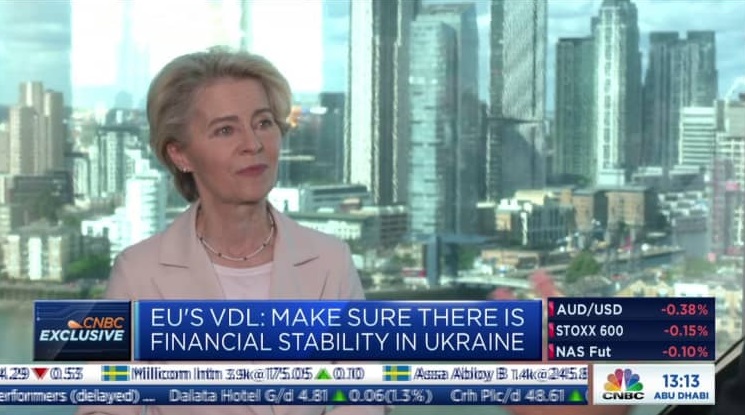
The European Union has assessed that it can’t legally confiscate outright frozen Russian assets and instead is focusing on using those assets temporarily, according to a document obtained by Bloomberg.
The EU is zeroing in on two options as it keeps exploring how it could harness more than €200 billion ($219 billion) in frozen Russian central bank assets and channel them to Ukraine, the report said.
An EU working party on the use of Russian reserves frozen under the bloc’s sanctions has been discussing how to gather information and assessing options under EU and international law. Its members see “no credible legal avenue allowing for the confiscation of frozen or immobilized assets on the sole basis of these assets being under EU restrictive measures,” it concluded. Instead it favors channeling windfall profits from the investments to Ukraine.
Austrian Foreign Minister Alexander Schallenberg urged caution in an interview with Bloomberg Television. “I fully understand the emotionality of the debate and that we say we have to get our hands on these assets,” he said.
“But we are rule-of-law states. We are defending a rules-based international order,” Schallenberg added. “So whatever we do in this endeavor has to be absolutely water-tight. It can be challenged, and it might be challenged in front of European or American courts. If any of these actions were to be lifted by a judge, it would be a diplomatic and economic disaster.”
Several major global banks are concerned that appropriating Russian assets could cause Moscow to retaliate against their remaining interests in the country, according to people familiar with the matter. Russia could make life harder for foreign banks and target their local staff, an executive at one bank said. A second executive said his bank isn’t lobbying directly but is opposed in principle to confiscation by the EU.
The European Central Bank has warned that using interest rate proceeds from the assets could encourage official reserve holders to turn their back on the euro, the report said.
The paper identified significant legal obstacles to one of the two options the bloc is exploring: temporarily using liquid assets of Russia’s central bank — in other words, investing the assets and directing the proceeds to Ukraine.
European Commission President Ursula von der Leyen said Wednesday in a speech to the Ukraine Recovery Conference in London that the bloc will come up with a proposal for using those holdings before its summer break in mid-July.
EU officials considered actively managing the assets to generate returns that could be used to support Ukraine. But property rights would need to be considered, and there is a risk of negative returns that couldn’t be completely eliminated, the report said.
read more in our Telegram-channel https://t.me/The_International_Affairs

 12:05 23.06.2023 •
12:05 23.06.2023 •






















